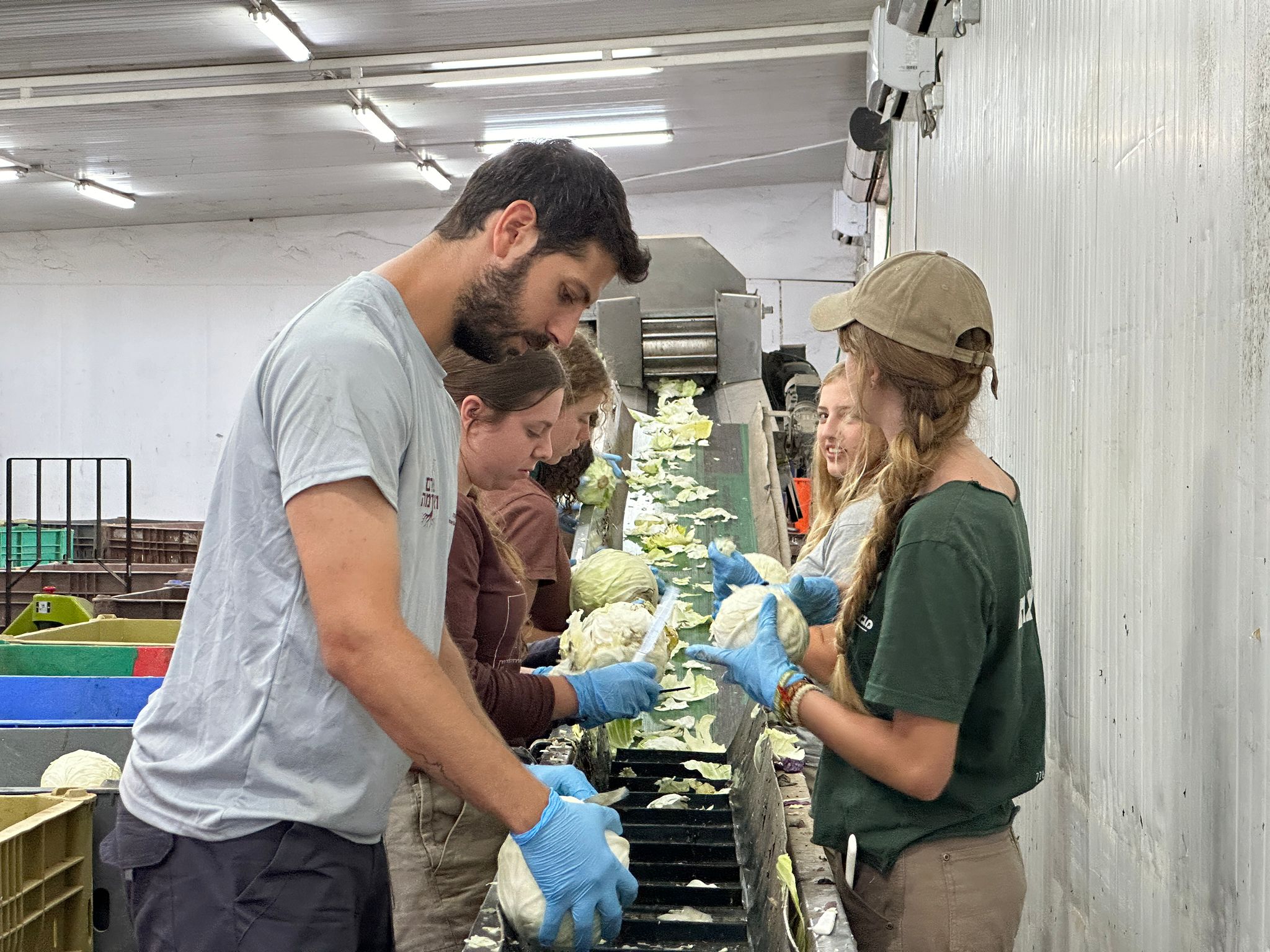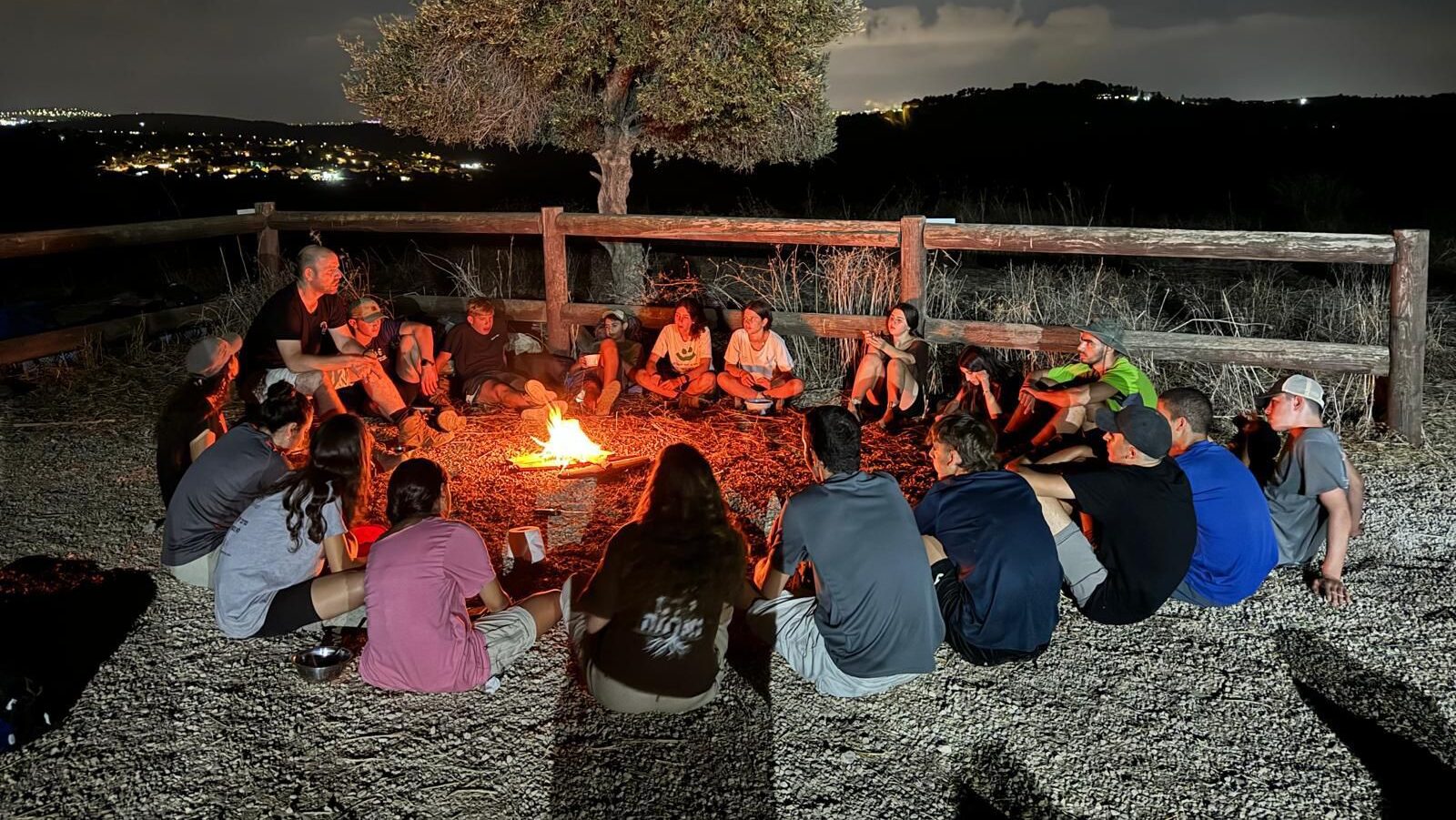New School Near Gaza Border Gives Hope for a New Chapter After October 7
HaShomer HaChadash leads efforts to rebuild the region’s agriculture, with a school in Moshav Sde Nitzan partnering with local farmers to recover from the devastation
A year after the October 7 Hamas attacks, the Gaza Envelope region in southwestern Israel remains visibly scarred. Neglected fields, posters of fallen soldiers, and scorched land serve as constant reminders of the devastation.
Agriculture was among the hardest-hit sectors, with 40,000 hectares of farmland damaged, leading to $500 million in lost income and infrastructure damage.
Before the attacks, Israel employed 29,900 foreign agricultural workers, primarily from Thailand, according to the Israeli Agriculture Ministry. Since the war, 9,948 of them have returned home, along with 20,000 Palestinian workers, who are now barred from entering Israel.
Israel’s agricultural workforce totals about 75,000, with over half comprised of foreign and Palestinian workers. The heavy reliance on this labor has caused a major crisis in the industry due to the worker shortage.
Since the breakout of the war, most foreign workers … left the country out of fear
“Since the breakout of the war, most foreign workers, especially the Thai ones, left the country out of fear. I don’t blame them, but this left a huge vacuum in the industry,” Ofek Salomon, principal of the Adam V’Adama school in Moshav Sde Nitzan, told The Media Line. “We found ourselves in a terrible position in the Gaza Envelope, which is why we started a national mission to open a school here to help local farmers and businesses.”
The Gaza Envelope region produces a significant portion of Israel’s vegetables—60% of its potatoes, half of its tomatoes, and about 40% of its cabbage and carrots—according to data from the Knesset Information and Research Center.
This holiday season, give to:
Truth and understanding
The Media Line's intrepid correspondents are in Israel, Gaza, Lebanon, Syria and Pakistan providing first-person reporting.
They all said they cover it.
We see it.
We report with just one agenda: the truth.


The first two weeks after the conflict began saw severe shortages in grocery stores and sharp price hikes. However, the situation has improved in recent months, as foreign workers gradually return and volunteers step in to assist.
The organization HaShomer HaChadash, founded in 2007, has been running various projects aimed at protecting Israel’s lands and connecting young people with farmers and ranchers in need. One project is a network of schools, called Adam V’Adama, meaning “Man and Land.” Now, in Moshav Sde Nitzan in the Gaza Envelope area, the organization has founded a new high school, thanks to the initiative of Principal Salomon.
“The activities the students take part in are mainly agricultural. We wake up every day at 5 o’clock and we go and work in the fields,” Salomon says. “The staff members, all of them, me—I’m the manager of the project—we work with the students, and we work until noon. And then we go back to our campus, take a shower, eat lunch, and go to school for four hours.”

Adam V’Adama students work in agriculture in the Gaza Envelope area, Sept. 11, 2024. (Dario Sanchez/The Media Line)
Salomon describes the studies as intensive and focused, allowing students to cover material for the matriculation exams in a shorter time due to small class sizes and excellent teachers. Afternoons are dedicated to activities such as studying Zionism, Judaism, philosophy, Arabic, and participating in hands-on workshops like carpentry, ceramics, and yoga. They also take part in hikes and trips lasting several days “to get to know the country through our feet.”
Funding comes from various sources, according to Salomon, including the Ministry of Education, which supplies teachers and materials, and the moshav, which provides the campus. “JNF-US assists with building the campus,” he adds, “while Bank HaPoalim, through the Poalim LeTkuma foundation, supports us financially for the first three years.”
“This is our first year, and this is our second week. We are already helping and working with four farmers in the area. We have 31 students and eight staff members,” said Salomon.
Salomon described how, on the project’s second day, students volunteered to help rebuild and paint a local elementary school after the October 7 attacks, reassuring families that it was safe to return.
He also shared an emotional moment when the students assisted an older farmer in a pineapple field. The farmer, devastated by the October 7 events, was brought to tears when he saw 30 young people from across Israel—religious and secular, from cities and kibbutzim—working together to rebuild. “On October 8, I couldn’t imagine that less than a year later I’d see young people here, moving just to help us rebuild,” the farmer told them. He later expressed his gratitude, saying, “I have to tell my children they can come back, that it’s safe again, and that our community and agriculture will thrive once more.” Salomon described this as a moment that encapsulated the students’ mission: to restore both the land and the community.
The Media Line visited Salomon and his students at another moshav, Ami’oz, where they were packaging cabbage. The students, who come from across Israel, have all been impacted by the war but share the same goal: to help shape a new future for the region.

Ofek Salomon (L), principal of the Adam V’Adama school in Sde Nitzan, works with his students packaging cabbage on Moshav Ami’oz, Sept. 11, 2024. (Dario Sanchez/The Media Line)
Each has a story, but we are all here to write a new chapter
“We have a student whose brother was killed in the north, a few days after the war started. And we have another student whose uncle was killed. He was murdered 500 meters from here, at the entrance to Moshav Mivtachim. Each has a story, but we are all here to write a new chapter,” Salomon said.
What happened on October 7 was terrible and shocking … but that is why we are here, to rebuild, and build again
Hannah Fishman, a student from Jerusalem, shared her thoughts: “What happened on October 7 was terrible and shocking, and we all got a very hard blow from it, but that is why we are here, to rebuild, and build again, and help the farmers, and help the local families, and volunteer. That is the reason why we are here.”

